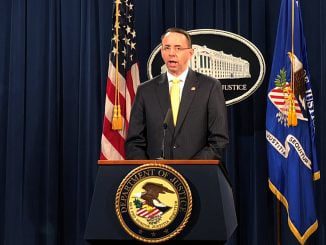WARSAW, Poland — On March 8, nearly two weeks after Russia invaded Ukraine, Taisiia Mokrozub took her infant son, parted from her husband and joined an exodus to safety in Poland. She believed the war would end quickly and she would be home by May.
But a half-year later, with shelling near a nuclear power plant in her hometown of Zaporizhzhia, and the front line so close, the 36-year-old’s husband is telling her to stay in Poland with their now-11-month-old baby. She now dreams of being home by winter, hoping Ukraine will have prevailed by then against Russia’s onslaught.
As the war reaches the sixth-month mark Wednesday, many refugees are facing the sad realization that they will not be going home soon, if they have homes to return to at all. With missiles falling even far from the front line, many wouldn’t feel safe yet, even in areas under Ukrainian control.
So they are biding their time, waiting for the end of a war that shows no signs of ending soon, longing for home and refusing to think too far into the future.
With a new academic year starting, some are reluctantly enrolling their children in schools abroad, worried they will fall behind in the Ukrainian system. Others take jobs below their skill levels. With most refugees being women, those with very young children, like Mokrozub, are unable to work.
“It seems to me that not only for me but for all Ukrainians, time has stopped,” Mokrozub said. “We all live in some kind of limbo.”
Russia’s invasion has created the largest refugee crisis in Europe since World War II. The UN refugee agency says a third of Ukrainians have fled their homes, with more than 6.6 million displaced within the country and over 6.6 million more across the continent.
European countries have welcomed them without the political backlash that met influxes of refugees from the Middle East and Africa in past years, however.
Poland has taken in the most Ukrainians, with an estimated 1.5 million having registered for national ID numbers that allow them social benefits. Germany, which doesn’t require visas for Ukrainians, has registered more than 900,000, though it isn’t clear how many of those may have gone home or headed elsewhere.
Warsaw now has 180,000 Ukrainian refugees — representing a tenth of the Polish capital’s population of 1.8 million — the largest single grouping anywhere.
Though Ukrainian and Russian — which is also commonly spoken back home — are heard on the city’s streets and grocery stores now carry some Ukrainian foods, the newcomers have integrated with little trouble and seem almost invisible.
For many of the refugees, Poland’s Slavic language and culture offer something familiar and reassuring. The country’s proximity to Ukraine makes it possible to travel back for short visits with husbands and fathers who are banned from leaving due to the war effort.
“We didn’t want to go farther,” said Galina Inyutina, 42, who arrived in Poland in early March from Dnipro with her 11-year-old son. They long terribly for their forests and fields and food.
“Mom, if we go farther away then it will take us longer to get home,” he told her.
The arrival of so many people has exacerbated a preexisting housing crisis in Warsaw, where rental prices have surged 30% over the last year, as well as other cities that have attracted large numbers of refugees.
In the early days of the war, hundreds of thousands of Polish families took Ukrainians, often total strangers, into their homes. Thanks to that hospitality, there was never a need for refugee camps, said Oksana Pestrykova, who administers a consultation center at the Ukrainian House in Warsaw, a social center for immigrants.
But what were expected to be short stays have turned into long ones, and some Poles are now calling the center’s hotline to ask for help from Ukrainian speakers to tell their guests it’s time to move on.
“The hospitality is getting weaker,” Pestrykova said. “We understand it and we were expecting it.”
Some corporations are stepping in to help.
The global tech company Siemens transformed office space at its Polish headquarters to create hotel-style accommodations for nearly 160 people, administered by the Warsaw city government. The facility is clean, with food and laundry facilities provided for free.
Oleh Yarovyi, from Khmelnytskyi in western Ukraine, arrived six years ago and has built up a coffee shop franchise with his wife. As they expand, he has lost some Ukrainian men helping with construction who returned to fight in the war, but he has been able to hire Ukrainian women who can use their language in a job they hope is temporary.
“Half of them plan to go back, so they don’t even try to learn Polish,” Yarovyi said. “They just look for a simple job without any additional challenges.”
Farther west, in Schwerin, Germany, Marina Galla, a computer science teacher who left Mariupol with her 13-year-old son in late March, has found relief and stability. Last month they moved into a small rooftop apartment after a long escape that took them through Poland and Berlin.
She is free from the horrors and the deprivation from which she fled: the bodies in the streets, drinking melted snow because there was no running water. Yet she feels crushed with sadness thinking of family left behind.
In a black backpack she has carried every day since leaving Mariupol, Galla keeps a handwritten note in a side pocket listing contact information for her mother, father and grandmother. She originally wrote it in case she was killed in the war, and even in the safety of Schwerin, she doesn’t leave home without it.
Her son messaged a lot with his friends from back home during their first months in Germany, but he barely talks to them anymore and has stopped asking when they will return to Ukraine.
“He probably understands,” Galla said, “that we will not be able to go back there.”



